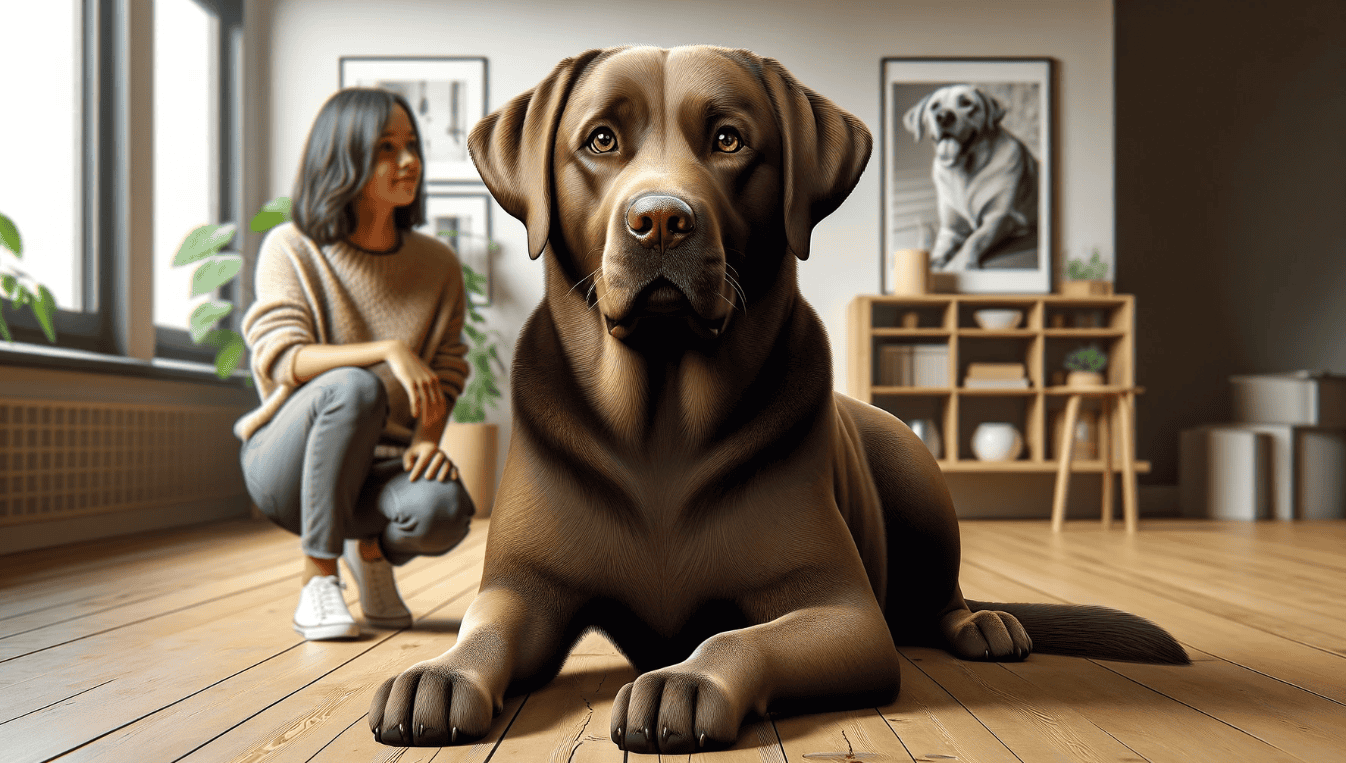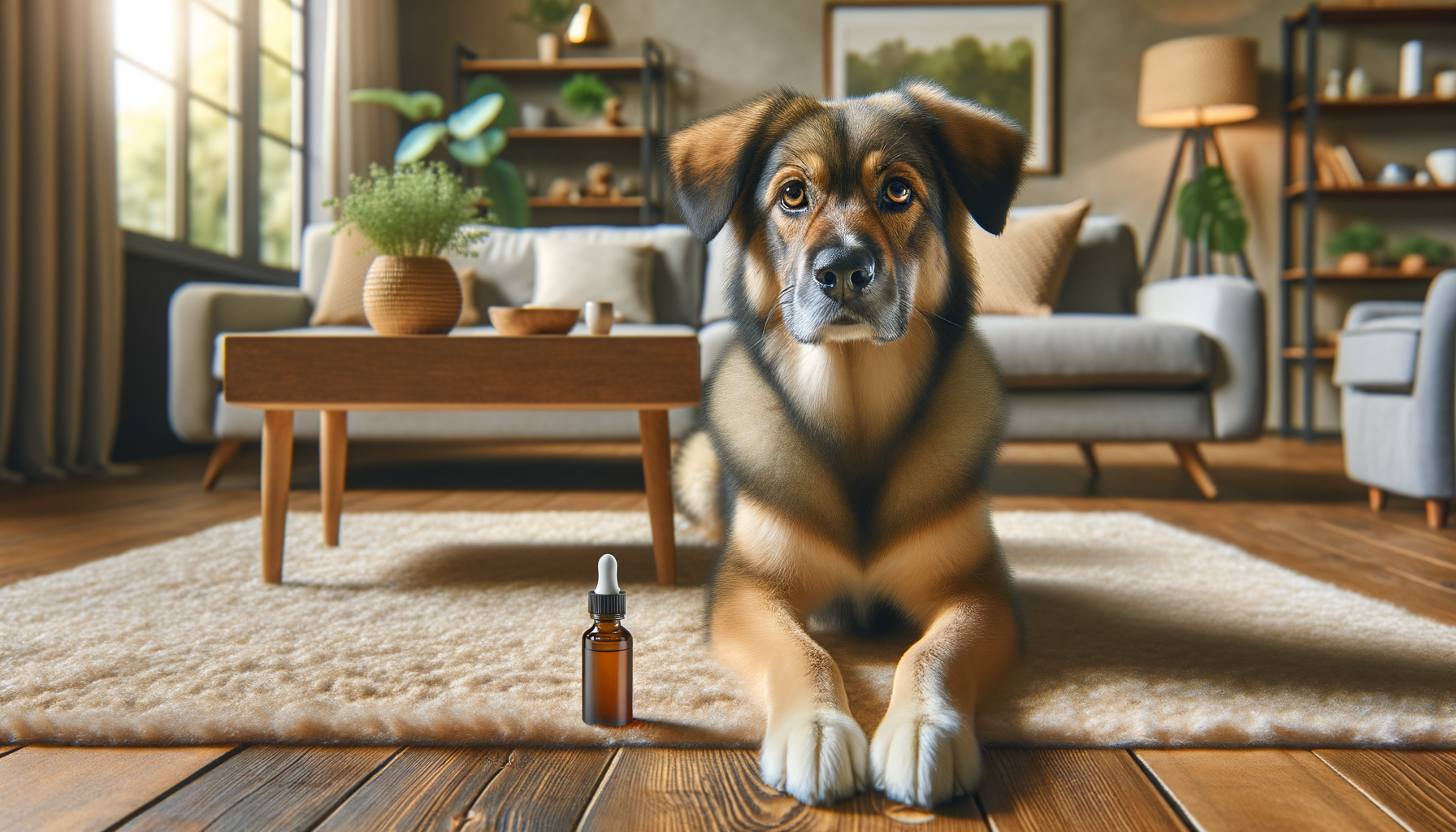As a holistic veterinarian, I understand the frustration and worry that comes when your beloved furry friend is constantly scratching their ears. It’s a clear sign of discomfort that can leave you feeling helpless. But don’t fret, I’m here to guide you on how to soothe an itchy dog ear. From recognizing the signs to understanding the causes, and most importantly, providing quick relief tips, I’ll walk you through everything you need to know to help your dog find comfort again. Remember, an itch-free ear is a happy ear!

As a holistic veterinarian, I often encounter distressed pet parents seeking advice on how to soothe an itchy dog ear. Recognizing the signs of itchy ears in dogs is the first and most crucial step to providing the relief your furry friend desperately needs.
Physical Signs of Ear Discomfort
Several physical signs can indicate that your dog is experiencing ear discomfort. These include redness or swelling in the ear canal, excessive ear wax, discharge, and a foul odor. Your dog may also frequently shake its head or scratch its ears, which can lead to painful sores or even an ear hematoma if left untreated. Noticing these signs early can help you take immediate action to alleviate your pet’s discomfort.
Behavioral Changes Indicating Ear Problems
Changes in your dog’s behavior can also signal ear problems. Dogs with itchy ears may become irritable or anxious, and may shy away from having their heads or ears touched. They may also show signs of hearing loss or difficulty balancing. If you notice your dog exhibiting any unusual behaviors, it’s important to consult with a veterinarian to rule out ear issues.
It’s essential to remember that an itchy ear could be a symptom of a more significant health problem, such as parasites, allergies, or infections. Therefore, it’s important to seek professional help if your dog’s ear discomfort persists or worsens despite your best efforts to soothe it.
Just as humans rely on their senses to interact with the world, so do our canine companions. An itchy ear can significantly impair your dog’s quality of life, making it crucial to address this issue promptly. By learning to recognize the signs of itchy ears in dogs, you’re taking a significant step towards ensuring your pet’s comfort and well-being.
Causes of Itchy Ears in Dogs
As a veterinarian, I often encounter pet parents seeking advice on how to soothe an itchy dog ear. But before we can successfully treat the issue, it’s crucial to understand the root cause.
Common Parasites Causing Itchy Ears
Parasites are one of the most common causes of itchy ears in dogs. The usual culprits include:
- Ear mites: These tiny creatures can cause intense itching, leading to constant scratching and shaking of the head. They are highly contagious and can easily pass from one pet to another.
- Fleas and ticks: Besides causing skin irritation, these pests can also infest your dog’s ears, causing itchiness and discomfort.
Allergies and Infections as Triggers
Another common cause of itchy dog ears is allergies. Dogs can be allergic to various things, including certain foods, environmental factors like pollen or dust mites, and even some cleaning products. Allergies often cause inflammation of the ear canal, leading to itchiness and discomfort.
Infections, both bacterial and fungal, are also frequent triggers of itchy ears in dogs. Yeast infections, in particular, are common in dogs with long, floppy ears that create a warm, moist environment conducive to yeast growth.
Recognizing the cause of your dog’s ear itchiness is the first step in figuring out how to soothe an itchy dog ear. Once you’ve identified the cause, you can take the appropriate steps towards treatment and relief. As a pet parent, understanding these causes can help you prevent future issues and ensure your furry friend’s comfort and happiness.
The Most Prone Dog Breeds to Itchy Ears
Understanding the predisposition of certain dog breeds to itchy ears can help in effectively managing and preventing this uncomfortable condition. Let’s explore the top breeds prone to ear issues and the reasons behind their susceptibility.
Top Breeds Prone to Ear Issues
While any dog can suffer from itchy ears, certain breeds are more prone due to their physical characteristics. These include:
- Labrador Retrievers: Known for their love of water, Labs often get water trapped in their ears, leading to infections and itchiness.
- Cocker Spaniels: Their long, floppy ears don’t allow for much air circulation, making them a breeding ground for yeast and bacteria.
- Basset Hounds: Similar to Spaniels, their long droopy ears provide the perfect environment for infections.
- German Shepherds: Their deep ear canals can accumulate debris, leading to itchiness and possible infections.
Reasons Some Breeds Are More Susceptible
The reasons why some breeds are more prone to itchy ears than others often come down to the structure of their ears and their lifestyle. For example:
- Ear Structure: Dogs with long, floppy ears are more susceptible as their ear structure traps moisture and restricts airflow, creating an ideal environment for infections.
- Lifestyle: Breeds that love water or are exposed to humid environments are more prone to ear issues. Moisture in the ear can lead to bacterial and yeast infections, causing itchiness.
- Allergies: Certain breeds are more genetically predisposed to allergies, which can trigger itchiness in the ears.
By understanding the predisposition of your breed, you can take preventive measures to minimize the risk of itchy ears. Remember, prompt attention to how to soothe an itchy dog ear can make a significant difference in your pet’s comfort and health.

Soothe Your Dog’s Itchy Ear: Quick Relief Tips
Seeing your fur baby in discomfort due to itchy ears can be heart-wrenching. But, don’t worry, there are several ways you can help alleviate your dog’s discomfort. Here’s a rundown of some effective home remedies and over-the-counter solutions that can offer quick relief to your dog’s itchy ears.
Home Remedies for Immediate Relief
Home remedies can be a great first line of defense against itchy ears. Here are a few you can try:
- Apple Cider Vinegar: Dilute apple cider vinegar with equal parts water and use a dropper to apply the solution into your dog’s ears. This natural remedy can help restore the ear’s pH balance and eliminate bacteria and yeast that may be causing the itch.
- Coconut Oil: Known for its anti-inflammatory and anti-fungal properties, coconut oil can soothe your dog’s itchy ears. Warm the oil slightly, and apply a few drops into the ear canal. Remember to massage the base of the ear gently to ensure the oil reaches all areas.
- Chamomile Tea: Chamomile has soothing properties that can help reduce inflammation. Brew a chamomile tea bag, let it cool, and then use a dropper to apply a few drops into your dog’s ear.
Remember, these remedies are for mild cases of itchiness. If your dog’s condition doesn’t improve or worsens, it’s time to consult your vet.
Over-the-Counter Solutions for Itchy Ears
There are also several over-the-counter solutions that can help soothe your dog’s itchy ears. These include:
- Ear Drops: Look for ear drops specifically formulated for dogs. These often contain ingredients like hydrocortisone to reduce inflammation and itchiness.
- Ear Cleansers: Regular use of a dog-specific ear cleanser can help prevent the buildup of wax, debris, and pathogens that can cause itchiness.
- Antiparasitic Treatments: If your dog’s itchiness is due to parasites like mites, an over-the-counter antiparasitic treatment can help.
Always follow the instructions on the product label and consult your vet if you’re unsure about any treatment.
Remember, how to soothe an itchy dog ear involves more than just treating the symptoms. It’s crucial to identify and address the underlying cause to prevent recurrence. So, while these quick relief tips can help, always consult a vet for persistent or severe cases.
Professional Treatments for Itchy Dog Ears
If your dog’s ears continue to itch despite your best efforts at home, it’s time to seek professional help. Don’t worry, it’s not a sign of failure on your part. Sometimes, the causes of itchy ears in dogs are more complex and require advanced medical intervention. Let’s look at some of the professional treatments available:
Veterinary Solutions for Persistent Itch
First and foremost, your vet will conduct a thorough examination of your dog’s ears to identify the underlying cause of the itchiness. This might involve a simple visual inspection or more advanced diagnostic tests like skin scrapings, cultures, or even allergy testing.
Once the cause is identified, your vet may prescribe one or more of the following treatments:
- Topical medications: These include ointments, creams, and ear drops designed to kill parasites, combat bacteria and yeast, or reduce inflammation.
- Oral medications: If the ear infection is severe or persistent, your vet may prescribe oral antibiotics or antifungal drugs. In some cases, steroids may be used to control inflammation and itchiness.
- Immunotherapy: If allergies are the culprit, your vet may recommend a course of immunotherapy to help desensitize your dog’s immune system to the allergen.
Surgical Interventions for Severe Cases
In severe cases, where the ear canal is badly damaged or the infection is chronic, surgery might be the best option. This is usually a last resort, but it can provide long-term relief for your dog. Some common surgical procedures include:
- Total Ear Canal Ablation (TECA): This involves removing the entire ear canal, effectively eliminating the environment where the infection thrives.
- Lateral Ear Canal Resection (LECR): This procedure involves removing part of the ear canal to improve ventilation and drainage.
- Ventral Bulla Osteotomy (VBO): This surgery is performed when the infection has spread to the middle ear. It involves opening the bulla (a bony structure in the ear) to remove infected material.
Remember, you’re not alone in this. Your vet is there to help you find the best solution for your dog’s itchy ears. With their guidance, you can get your furry friend back to their happy, itch-free self.

Preventing itchy ears in your dog is just as important as treating them. By taking proactive steps, you can keep your furry friend comfortable and itch-free. Let’s discuss some prevention strategies, which include a regular ear cleaning regimen, and diet and lifestyle modifications.
Regular Ear Cleaning Regimen
One of the best ways to prevent itchy ears in dogs is by maintaining a regular ear cleaning schedule. This helps to remove any buildup of wax, dirt, or debris that may potentially cause irritation or infections. But remember, overcleaning can also lead to problems. Here’s a simple cleaning routine you can follow:
- Inspect your dog’s ears regularly to spot any signs of redness, swelling, or discharge.
- Use a dog-specific ear cleaning solution. Avoid using water or any human products as these may cause further irritation.
- Gently clean the outer part of the ear using a cotton ball or cloth. Never use a cotton swab as it can push debris further into the ear.
- After cleaning, dry your dog’s ears thoroughly to prevent moisture build-up, which can lead to infections.
Diet and Lifestyle Modifications
Another effective way to prevent itchy ears in dogs is by making certain diet and lifestyle changes. Some dogs may be prone to ear issues due to allergies, which can be triggered by certain foods or environmental factors. Here are some modifications you can make:
- Monitor your dog’s diet: Some dogs may be allergic to certain ingredients in their food. If you suspect a food allergy, consider switching to a hypoallergenic diet. Always consult your vet before making any major dietary changes.
- Control environmental allergens: Limit your dog’s exposure to allergens like pollen, dust mites, and mold. Regular cleaning of your home and your dog’s bedding can help reduce these allergens.
- Regular exercise: Regular physical activity can boost your dog’s immune system, making them less susceptible to infections that can cause itchy ears.
Remember, prevention is always better than cure. By maintaining a regular cleaning routine and making necessary diet and lifestyle changes, you can help prevent itchy ears in your dog. However, if your dog’s ears continue to itch despite your efforts, it’s important to consult with a vet for a proper diagnosis and treatment plan.
Conclusion
In wrapping up, it’s crucial to remember the key steps in managing your dog’s itchy ears. It’s not just about providing temporary relief but also ensuring the overall well-being of your pet. Remember, you can use home remedies and over-the-counter solutions for immediate relief. However, if the itch persists, it’s best to seek professional help from your vet.
Understanding and recognizing the signs of itchy ears in your dog is the first step towards addressing the issue. Pay attention to physical signs such as redness or swelling, as well as behavioral changes like excessive scratching or shaking of the head.
Identifying the causes of itchy ears is equally important. This could range from common parasites to allergies and infections. Remember, certain breeds are more prone to ear issues, so if your dog falls under this category, you might need to take extra precautions.
Finally, prevention is key. Regular ear cleaning, along with diet and lifestyle modifications, can go a long way in preventing itchy ears in your dog. However, always remember that each dog is unique and what works for one may not work for another. Hence, it’s essential to understand your dog’s specific needs and address them accordingly.
Remember, your furry friend relies on you for their health and comfort. As a dog parent, it’s your responsibility to ensure they’re free from distress. So, when it comes to soothing your dog’s itchy ears, be proactive, be observant, and most importantly, be patient. Your furry friend will thank you for it!
Frequently Asked Questions
What are some quick relief tips for my dog’s itchy ear?
Cleaning your dog’s ears regularly, using a vet-recommended solution, applying a warm compress, and providing a balanced diet can help soothe your dog’s itchy ears.
How often should I clean my dog’s ears to prevent itching?
The frequency of ear cleaning depends on your dog’s breed, age, and health. Generally, once a week is sufficient. However, dogs with ear infections may need daily cleaning.
What should I avoid when trying to soothe my dog’s itchy ears?
Avoid using cotton swabs as they can damage your dog’s ears. Also, avoid using water or alcohol-based solutions as they can cause irritation.
What are the signs that my dog’s itchy ears have become a serious problem?
If your dog’s ears are red, swollen, have a foul smell, or if your dog is in pain, it could be a sign of a serious problem and you should consult a vet immediately.
Can a change in diet help soothe my dog’s itchy ears?
Yes, a balanced diet can boost your dog’s overall immunity and health, which can help prevent ear infections that cause itching.
